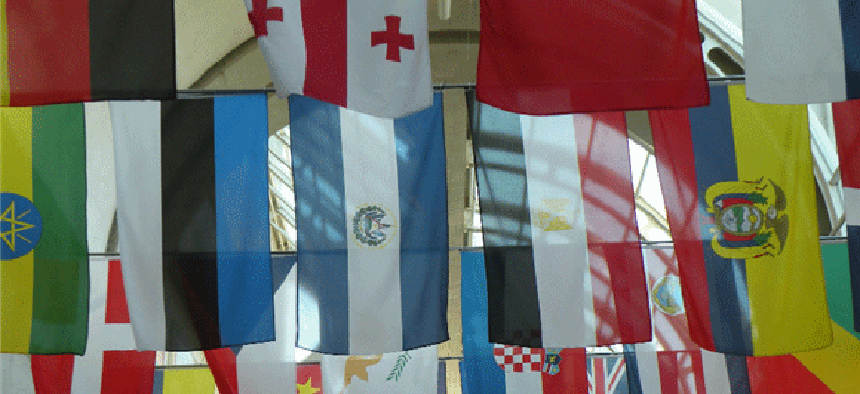Putting cybersecurity on the diplomatic agenda


Connecting state and local government leaders
The EastWest Institute is holding its third cybersecurity summit in India next week, part of an effort to bring nations together in this strange new world called cyberspace.
The Defense Department has recognized cyberspace as a battle domain, alongside the traditional domains of land, sea and air, and the more recent addition, space. While nations are preparing for war in the new domain of cyberspace, the EastWest Institute (EWI) is working for peace -- or at least a measure of security.
“Securing cyberspace is really a group challenge,” said Harry Raduege, chairman of Deloitte LLP's Center for Cyber Innovation. “It can’t be solved by any company or country alone.”
In an effort to provide a forum for addressing that challenge, EWI held its third Worldwide Cybersecurity Summit in New Delhi on Oct. 30 and 31. What distinguishes the EWI summit is the level of quasi-official government representation, said Raduege, a retired Air Force general. Scheduled attendees from the United States included the State Department’s coordinator for cyber issues, Chris Painter, and ministerial level participation from other countries. Howard Schmidt attended the first two summits, in Dallas and London, as White House cybersecurity coordinator.
“It’s an opportunity for track II diplomacy,” Raduege said, in which non-officials and officials acting unofficially can talk over issues that haven’t yet risen to the level of official consideration. By identifying areas of agreement or at least common concern, they can lay the groundwork for more formal talks. EWI efforts to date have included a report on ensuring the reliability of undersea communications cables and efforts to establish international rules for governing cyber conflicts.
Track II diplomacy also has produced some unlikely partnerships. The United States and China collaborated on a report on fighting spam and botnets, and Raduege is a member of a working group (the institute calls them breakthrough groups) exploring the possibility of a cyber détente between the United States and China. Both countries are dependent on cyberspace, he said, and are looking for areas of agreement. “We are talking -- that is better than accusing each other.”
The United States and Russia recently collaborated on a report that produced common definitions for 20 key cybersecurity concepts, the beginning of what is hoped will be a comprehensive international cyber taxonomy. Cooperation on cybersecurity policy between the two countries has been hampered in part because they do not speak the same language. Establishing common definitions does not eliminate the real differences in how the two countries approach their interests in cyberspace, but it provides a starting place for talking about them, Raduege said.
Centuries of experience in the traditional military domains has shown that countries with widely differing points of view and interests can get along on land, sea and in the air. They are not always on friendly terms, and wars cannot always be avoided. But finding some common ground makes it possible to avoid at least some of the conflict.
Cyberspace is new, but it is not too soon to begin looking for common ground there, too.




